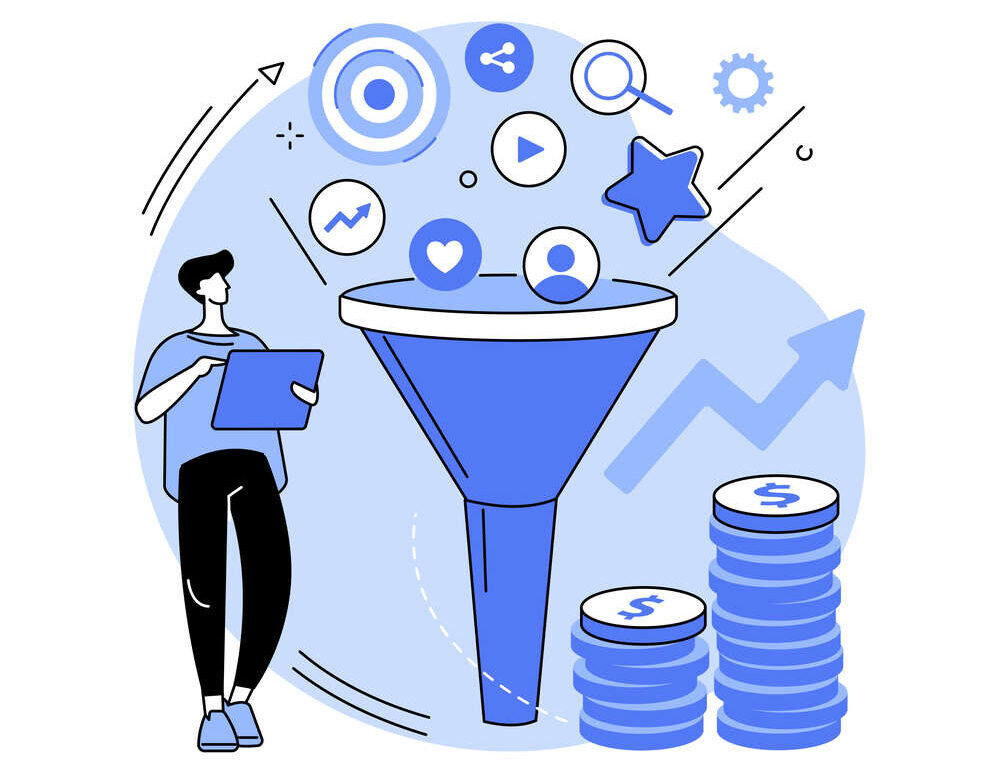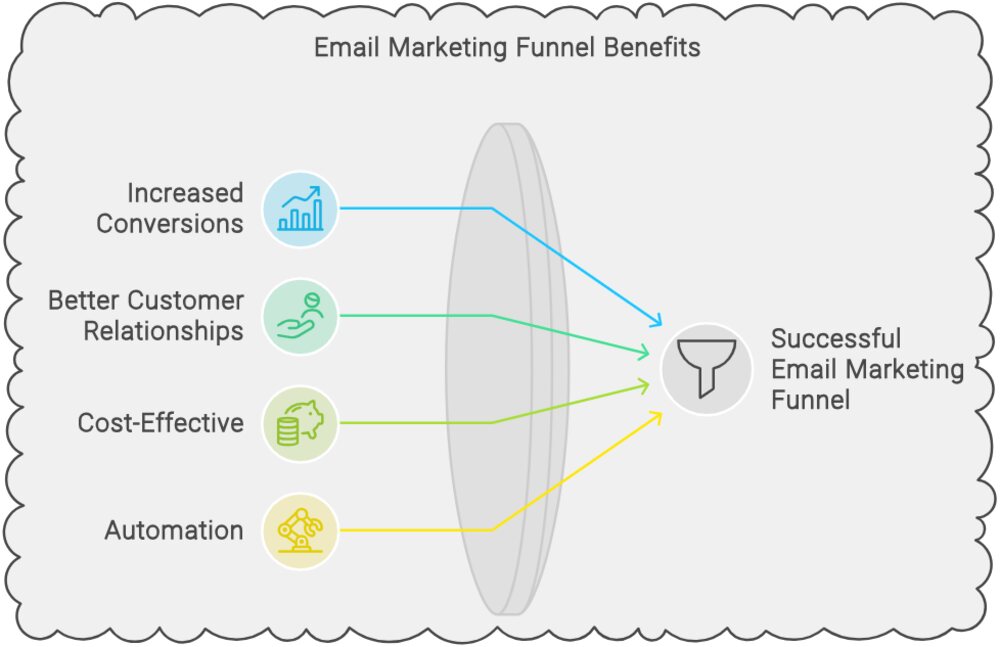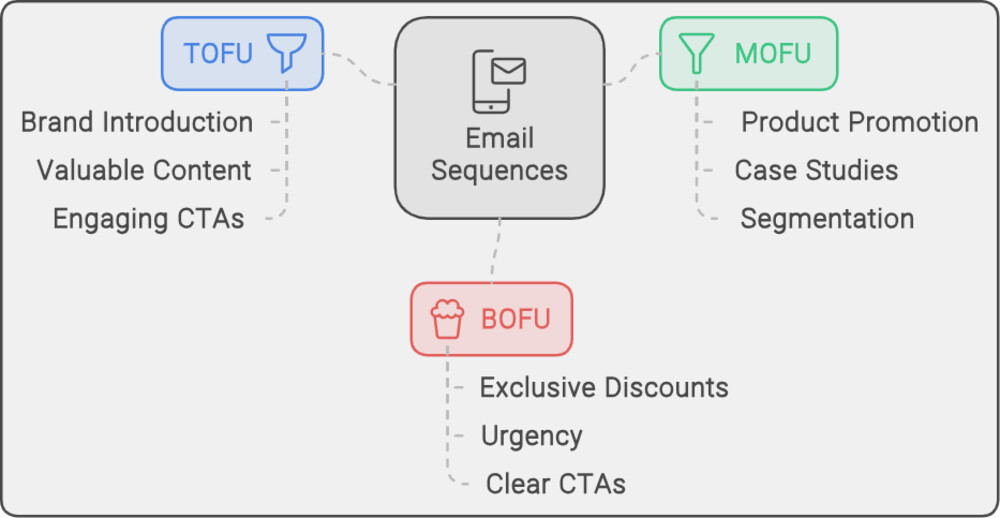How to Automate Your Sales Workflow Using Pipedrive CRM
Learn how to streamline & automate your sales workflow using Pipedrive CRM to boost efficiency and drive better result.

"Discover how to create an effective email marketing funnel that drives conversions for your business. Get expert insights and tips for building an optimized email campaign that guides your subscribers towards making a purchase or taking a desired action."
Email marketing is one of the most effective ways to promote your business and increase sales. However, sending random emails to your subscribers won’t guarantee success.
To convert your subscribers into customers, you need to use an email marketing funnel. In this blog post, we’ll cover everything you need to know about email marketing funnels and how to create one that drives conversions.
An email marketing funnel is a series of emails that are sent to subscribers to move them through different stages of the buying process. The funnel is designed to nurture prospects and build trust with them, with the ultimate goal of converting them into customers.
The funnel typically consists of three stages: the top of the funnel (TOFU), the middle of the funnel (MOFU), and the bottom of the funnel (BOFU).
TOFU: At this stage, the subscriber is aware of your brand but has not yet shown any interest in buying your products or services. The emails you send at this stage should focus on building trust and establishing your authority in your industry.
You can share blog posts, social media content, or any other valuable information that can help the subscriber solve a problem or learn something new.
MOFU: At this stage, the subscriber has shown some interest in your brand and is considering buying your products or services. The emails you send at this stage should provide more information about your products or services and highlight their benefits.
You can also offer free trials, demos, or consultations to help the subscriber make a more informed decision.
BOFU: At this stage, the subscriber is ready to make a purchase. The emails you send at this stage should focus on closing the sale. You can offer discounts, bonuses, or any other incentive that can encourage the subscriber to take action.

Email marketing funnels are essential for several reasons:
An email marketing funnel can significantly increase your conversions by guiding your subscribers through the buying process and providing them with the information they need to make a purchase.

By providing value at every stage of the funnel, you can build stronger relationships with your subscribers and increase their loyalty to your brand.
Compared to other marketing channels, email marketing is relatively inexpensive, making it an ideal choice for small businesses with limited budgets.
Email marketing funnels can be fully automated, which means you can set them up once and let them run in the background, freeing up your time to focus on other areas of your business.

Before you start creating your email marketing funnel, you need to define your goal. What do you want to achieve with your funnel? Do you want to increase sales, generate leads, or promote a new product? Defining your goal will help you create a more focused and effective funnel.
Who is your target audience? What are their pain points, needs, and desires? Understanding your audience will help you create more relevant and personalized emails that resonate with them.
To get people to subscribe to your email list, you need to offer them something of value in exchange for their email address. This is called a lead magnet. Your lead magnet could be an ebook, a webinar, a free trial, or anything else that solves a problem or provides value to your target audience.

Once you have people on your email list, you need to start sending them emails. Your email sequences should be tailored to each stage of the funnel.
TOFU: At the top of the funnel, your email sequences should focus on introducing your brand and providing valuable content that educates and informs your subscribers. Share blog posts, infographics, or videos that address common pain points and challenges that your audience faces.
Make sure your content is engaging and informative, and include a clear call-to-action (CTA) that encourages subscribers to take the next step.
MOFU: In the middle of the funnel, your email sequences should be more focused on promoting your products or services. Share case studies, testimonials, or product demos that showcase the benefits and value of your offerings.
You can also segment your email list based on subscriber behavior, such as which links they clicked or which pages they visited on your website. This will allow you to personalize your emails and provide more targeted messaging that speaks directly to their needs and interests.

BOFU: At the bottom of the funnel, your email sequences should focus on closing the sale. Offer exclusive discounts, free shipping, or any other incentives that can encourage subscribers to take action.
Create a sense of urgency by setting a deadline or limit on the offer, and include a clear and prominent CTA that leads to a checkout page or landing page where they can complete their purchase.
Once you’ve set up your email sequences, it’s important to test and optimize them for better results. Use A/B testing to test different subject lines, CTAs, and email copy to see what resonates best with your audience.
Use analytics and tracking tools to monitor your email open rates, click-through rates, and conversion rates, and make adjustments as needed to improve your results.

Email marketing funnels are a powerful tool for converting subscribers into customers. By understanding the different stages of the funnel and tailoring your messaging to each stage, you can guide your subscribers through the buying process and build stronger relationships with them.
With the right strategy and execution, an email marketing funnel can significantly increase your conversions and revenue, while providing a cost-effective and scalable way to promote your business.